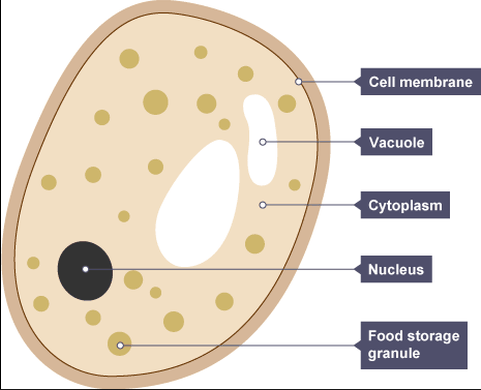Unicellular fungi include the yeasts. Fungi are found in most habitats, although most are found on land. Yeasts reproduce through mitosis, and many use a process called budding, where most of the cytoplasm is held by the mother cell. Saccharomyces cerevisiae ferments carbohydrates into carbon dioxide and alcohol, and is used in the making of beer and bread. S. cerevisiae is also an important model organism, since it is a eukaryotic organism that's easy to grow. It has been used to research cancer and neurodegenerative diseases as well as to understand the cell cycle. Furthermore, research using S. cerevisiae has played a central role in understanding the mechanism of meiotic recombination and the adaptive function of meiosis. Candida spp. are responsible for candidiasis, causing infections of the mouth and/or throat (known as thrush) and vagina (commonly called yeast infection).
Diagram of unicellular fungie
